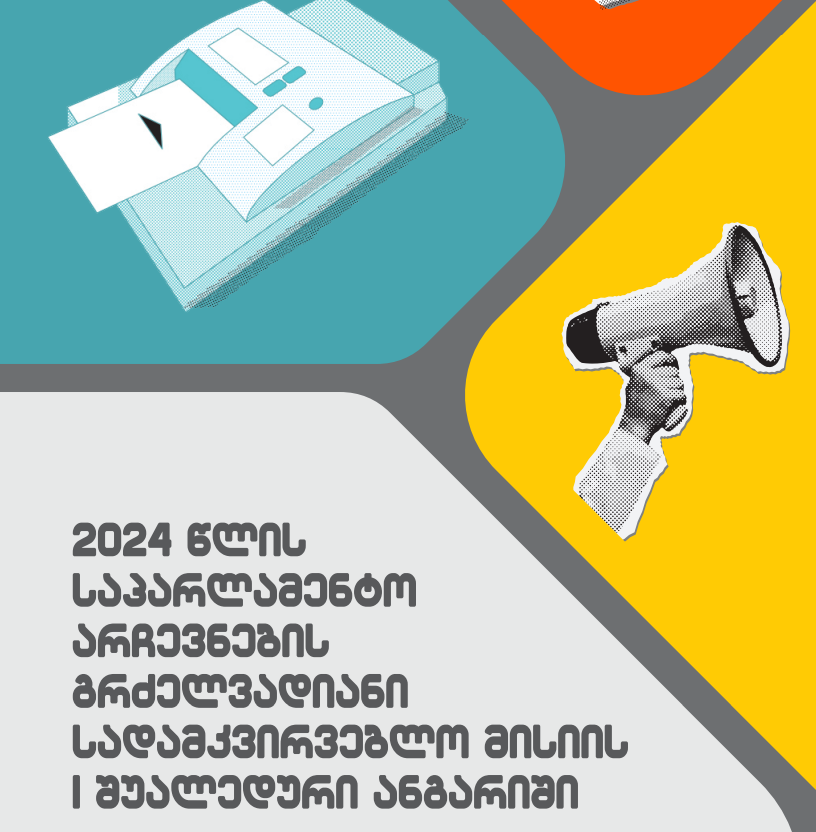


Georgian Young Lawyers’ Association (GYLA) held a presentation of its Election Observation Mission for the 2024 Parliamentary Elections in Georgia. During the event, the organization introduced its updated methodology, the first interim report of the long-term observation mission, and a project focused on monitoring criminal cases.
GYLA’s observation mission covers the pre-election, election day, and post-election periods. Monitors closely observe the political context, media environment, use of hate speech, and the allocation of administrative resources. Additionally, GYLA is paying careful attention to the possible impact of the "Russian Law" on observation organizations.
On election day, GYLA will deploy 600 observers to monitor up to 1,500 polling stations nationwide, as well as the operations of district election commissions. It is important to note that GYLA will document the summary protocols of all polling stations and demand appropriate responses in the event of any discrepancies. GYLA will also pursue legal action in cases of significant electoral violations.
Interim Report of the Long-term Observation Mission
The first interim report covers the period up to June 2024 and highlights key trends that impact the conduct of elections in a free and fair environment. The report emphasizes several important trends:
- Deepening Polarization: Legislative initiatives by the government, including the reintroduction of the "Russian Law," have significantly deepened political polarization, threatening the possibility of holding elections in a free environment.
- Discrediting the Civil Sector: Deliberate and systematic campaigns to discredit the civil sector have deteriorated the environment and harmed the development of democratic processes.
- Legislation Targeting Vulnerable Groups: The report also notes legislative changes aimed at restricting the rights of vulnerable groups, including the rollback of gender quotas.
- Changes to CEC Formation Rules: The potential impact of changes to the rules for forming the Central Election Commission and its decision-making processes on the impartiality of the election process is alarming.
- Return to Majoritarianism by the Ruling Party: The introduction of the delegate system by the ruling party is an attempt to reintroduce majoritarian elements under a proportional electoral system, which alters the criteria for candidate selection, campaign strategies, and the logic and priorities of party headquarters, bringing the electoral marathon closer to the logic of majoritarian elections.
- Abuse of Administrative Resources: Cases of abuse of administrative resources have emerged during the election year. For instance, calls were made to employees of state and local government institutions to attend rallies in support of the "Russian Law"; during a gathering of Georgian Dream supporters in Telavi, public officials from the Ministry of Internal Affairs and municipal bodies were present during working hours and engaged in party campaigning.
- Implementation of Social Programs: During the reporting period, there was a notable increase in the government’s announcement of various social programs, including a large-scale amnesty for prisoners, debt forgiveness, salary increases for teachers and public servants, staff increases, and the completion of infrastructure projects.
GYLA also presented a project that will monitor significant criminal cases in the context of the 2024 parliamentary elections. This project will cover cases such as the protection of the rights of those detained during protests against the "Russian Law," incidents of persecution against media outlets and journalists, and issues related to freedom of expression.
ჯ. კახიძის #15, თბილისი, საქართველო, 0102 ; ტელ: (995 32) 95 23 53; ფაქსი: (995 32) 92 32 11; ელ-ფოსტა: gyla@gyla.ge; www.gyla.ge
15, J. Kakhidze str. 0102, Tbilisi, Georgia. Tel: (995 32) 95 23 53; Fax: (995 32) 92 32 11; E-mail: gyla@gyla.ge; www.gyla.ge